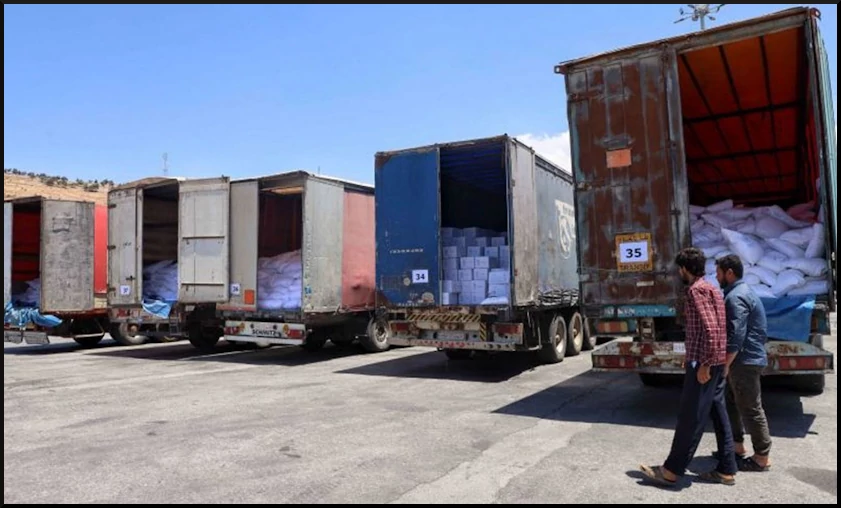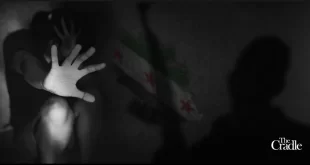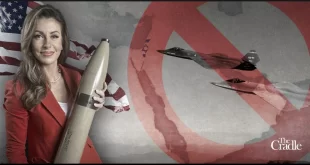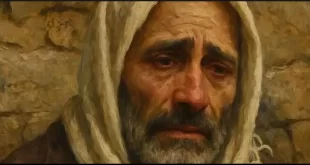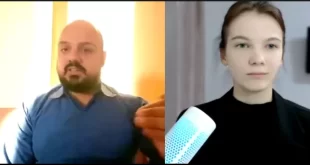by Steven Sahiounie, published on Mideast Discourse, February 23, 2023
I highly suggest reading some of the linked articles. HTS is apparently ‘taxing’ aid providers and ‘managing’ distribution in Idlib, while the main body of Syrians are denied aid entirely due to U.S. sanctions. An Arabic language article that is the source of the header image cites a UN study stating that if all aid were to go though the Syrian government, the people of Idlib would not get enough to survive. But this isn’t due to foul play on the part of the government, but rather the limitations placed on the vast majority of the population by US Sanctions. Every time the subject arises in the UNSC, the representatives of Russia and China state this case and demand that sanctions be lifted so that aid can be distributed equally throughout the country. The current tragedy makes this criticism all the more poignant.
I saw an article stating that President Assad has ‘supported’ the opening of a second gateway from Turkey into Idlib, ostensibly due to the destruction of the highway from Turkey into al Bab. Sadly, it crossed my mind that he might be desperate enough to think about buying some of the excess referred to below from those HTS thieves for the rest of the Syrian people. After all, HTS is above the law and doesn’t need to worry about US Sanctions. [ssm ed]
Politics are first and foremost in the international humanitarian response to the 7.8 magnitude earthquake which devastated Turkey and Syria on February 6. The western humanitarian aid groups, and their partners in the western media, have lavished all the attention and aid on one small province alone in Syria: Idlib.
With so much valuable aid pouring in through the border with Turkey, the terrorist group which controls tiny Idlib is now overwhelmed with the excess aid. The entire population of the Idlib province is estimated at 3 million. The aid arriving in cargo trucks far exceeds the needs of the population.
Idlib shares an earthquake fault line with the epicenter in Turkey, and with the Syrian coastal city of Latakia, which has not received western humanitarian aid, even though over 800 residents are dead, 142,000 are homeless, and 102 buildings have collapsed.
Aleppo is also deprived of aid, and is closer to the epicenter than Idlib or Latakia, but does not sit on a fault line. Aleppo has 1,500 dead, and 10,000 injured.
The US administration under Obama began the war in Syria in 2011 as a regime change project, which the European Union and fellow NATO members supported as part of their continuing subservience to Washington and its’ never-ending wars in the Middle East. The ‘rebels’ were first billed by the US-EU-NATO bloc as ‘freedom fighters’, but soon morphed into Al Qaeda and ISIS. The US and EU continue to support the group in control of Idlib, regardless of their UN designation as an outlawed Radical Islamic terrorist group.
Idlib and its leader
Reuters reported on February 12, that earthquake aid had been refused entry into Idlib by Hayat Tahrir al-Sham (HTS), the terrorist group in control of Idlib, according to the UN. Locals reported that HTS was demanding $1,000 per truck of aid.
Muhammed Al-Julani is the commander-in-chief of HTS, formerly the head of Jabhat al-Nusra, the Al Qaeda branch in Syria, and previously the right hand of Abu Bakr al Baghdadi, the head of ISIS.
The US State Department listed Al-Julani as a “Specially Designated Global Terrorist” in May 2013, and four years later announced a $10 million reward for information leading to his capture. Western journalists and western aid agencies are in constant contact with him which makes a mockery of his designation as a wanted terrorist.
Al-Julani released an audio statement on 28 September 2014, in which he stated he would fight the “United States and its allies” and urged his fighters not to accept help from the West, even though it was the US who was supplying all the weapons to the Syrian militants.
Shortly after the US-NATO war for regime change against the government of Syrian President Bashar al-Assad began in 2011, al-Julani played a key role in the ISIS move into Syria. He formed a terrorist group called Jabhat al-Nusra. This group was to act as a front for ISIS.
By December 2012, the US Department of State declared Jabhat al-Nusra to be an officially designated terrorist organization. Under al-Julani’s leadership, Nusra grew into one of the most powerful groups in Syria.
On January 28, 2017, Julani announced a name change to Hayat Tahrir al-Sham (HTS) to circumvent the US terrorist designation, and thus allow for the US and all its western allies to continue its support. HTS now controls nearly all of the Idlib province, under the governance of the HTS-aligned Syrian Salvation Government.
Charles Lister reported that HTS had attacked Afrin in June 2022, but a phone call from a senior figure within Turkey’s National Intelligence Organization (MIT) saw HTS forces turn back and return to Idlib, demonstrating the collusion of the Turkish government, a NATO member, with the terrorist group.
In November 2022, Al-Monitor reported that HTS not only controls Idlib, but seeks to expand, and its Salvation Government maintains formal contacts with foreign governments and coordinates with the UN aid to Idlib. An HTS fighter told the media that HTS pays its members monthly salaries ranging between $100 and $300 depending on the nature of the work, while the salaries of fighters in the Turkish-backed Syrian National Army are no more than $35 per month.
The Al-Monitor report stated a camp resident in Atma said that HTS deliberately causes difficult living conditions for civilians, by restricting fuel and electricity, and imposing fees at crossings, and even on food and drinks.
Ugarit News had reported that HTS imposed a tax of $30 on each car loaded with foodstuffs entering its areas of control through the land crossings.
Al-Julani switched to wearing a western suit and tie a few years ago in the US promoting a clean-up of his image. The camouflaged uniform and his head scarf were packed away as the US and EU tried to sell him as ‘one of us’. The west was desperate to legitimize their support of a terrorist with ties to human rights abuses and chopping off heads. Today, he determines who in Idlib gets aid, the prices to be charged for entry of aid, and what extra aid will be sold. He has set up checkpoints everywhere in Idlib and has control over everything in Idlib, even the western humanitarian aid.
International aid to Idlib
In January, the UN resolution to bring humanitarian aid from Turkey was extended by six months with one crossing point agreed upon. The Turkish border crossing has been proven to be a smuggling route for terrorists, weapons, and illegal activities.
International aid agencies in Idlib are as follows: CARE International, Danish Refugee Council, Global Communities – Syria, HI – Humanity & Inclusion, The Mentor Initiative, Sham Humanitarian, People in Need, Norwegian Refugee Council, HIHFAD, Dozana, Solidarités International, World Vision, Welt Hunger Life, Christian Aid, Syrian Relief & Development, Tamdeen Youth Foundation, Asylum Access, Rahma Worldwide, ATAA, SAMS, BINAA, International Rescue Committee, SEMA, Action for Humanity, Takaful Al Sham, CAFOD, Abs Development Organization for Woman & Child, Search for Common Ground, Save the Children, Action Aid, Relief International, Oxfam, War Child, Act Alliance, Mercy Corps. (Of these, only Oxfam is also registered to provide aid to the majority of the population in government held Syria [ssm])
International aid has chosen to not work with the central government of Syria at Damascus. Instead of landing planes full of aid at Damascus, and Aleppo and shiploads at the port of Latakia, the west insists on only using Turkey as the gateway to Idlib.
The US, EU and NATO policy towards Syria is regime change. These freedom-loving democracies want the followers of Radical Islam, HTS, to take over Syria. The same governments which denounced the Taliban in Afghanistan are promoting a similar group in Syria.
Latakia, Jeblah, and Aleppo destruction
Turkey is an ally of NATO, the EU, and western countries, and is not subject to sanctions. Aid is pouring in from NATO, the EU, and all countries, including Ukraine. However, Latakia, Jeblah, and Aleppo are not receiving western humanitarian aid because of sanctions.
The country director of the Syrian Arab Red Crescent, Mohammed Hammoud, said that a lack of heavy equipment means that 80 percent of the work to dig out survivors is done by hand in areas outside of Idlib. He reported the hospitals in Aleppo are overwhelmed with earthquake victims. A similar situation is on the coast of Latakia. The Syrian Arab Red Crescent works in all areas of Syria and is not affiliated with any government.
US-EU sanctions against the Syrian people
The sanctions against Syria do not affect Idlib and the areas the US occupies together with the Kurdish separatist movement SDF in the northeast. Western humanitarian aid organizations are present in both Idlib and the Kurdish area, but not elsewhere.
Humanitarian aid groups have to be registered to work in Turkey, but those groups did not want to follow the same registration procedure in Syria because they are supporting the destruction of the Syrian government, and have chosen to aid the terrorists.
Steven Sahiounie is a two-time recipient of the Serena Shim Award for Uncompromised Integrity in Journalism.
 Syria Support Movement solidarity with the Syrian people
Syria Support Movement solidarity with the Syrian people

